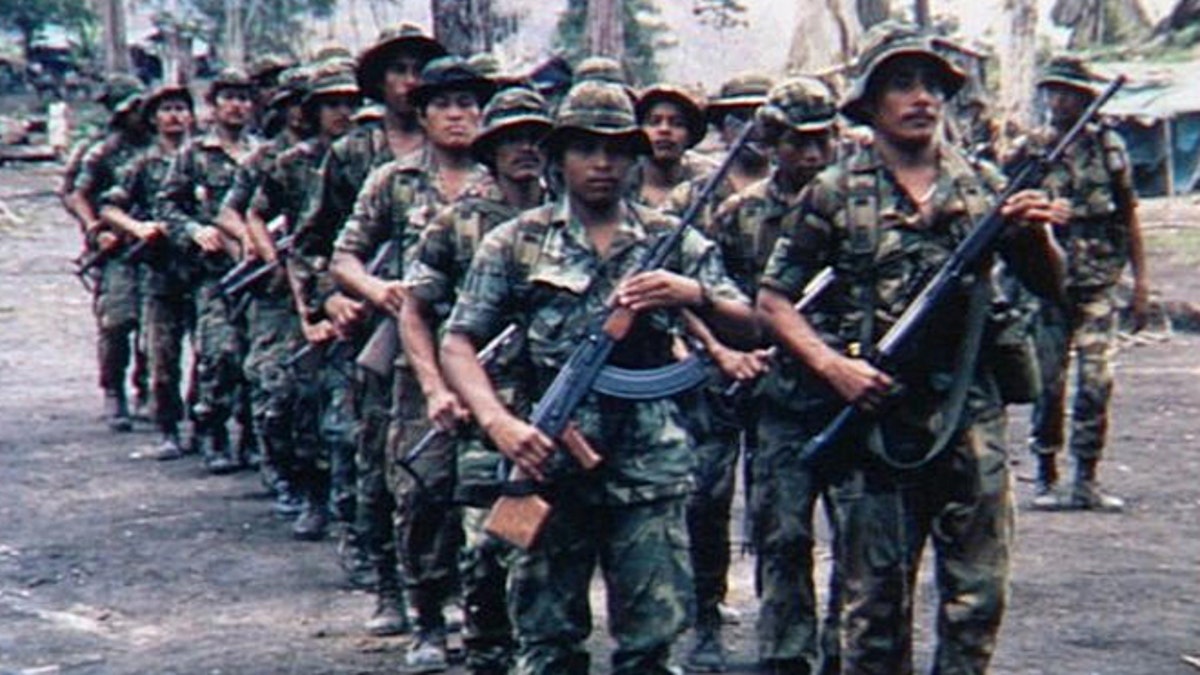
The United States government’s continuing support for Syrian rebels to counter the threat of Islamic State terrorists in the region is just the latest attempt by the Central Intelligence Agency to arm and train insurgencies across the globe – a practice that has generally failed to provide positive results for all involved, astill-classified internal CIA review uncovered by the New York Times revealed.
The CIA’s counterinsurgency efforts throughout Latin America – particularly in Fidel Castro’s Cuba and Sandinista Nicaragua – are prime examples of the issues entailed in the U.S. policy to arm rebels hostile to anti-American governments, the report indicates.
“Each country and each situation has its own story but there is always a lot of strife when it comes to arming rebel groups,” Larry Birns, the director of the Washington D.C.-based Council on Hemispheric Affairs told Fox News Latino.
While the C.I.A. review, presented to President Barack Obama in the White House Situation Room earlier this year, did highlight some of the agency’s victories in the counterinsurgency field – its 1947 arming of Greek soldiers to put down a communist insurgency and the successful work to arm the mujahedeen rebels during the Soviets war in Afghanistan in the 1980s – it mainly focused on the failures of the tactics of arming rebel groups.
Along with pointing that some mujahedeen fighters eventually formed the base of al-Qaeda, the review noted the arming of Nicaragua’s Contra fighter to overthrow the left-wing Sandinista government and counter the USSR's influence in the 1980s was a major blunder.
“This was common place,” Birns said of the U.S.’s proxy wars against the Soviet Union. “And it was always cast in the light of the Cold War.”
The administration of President Ronald Reagan authorized the CIA in the early 1980s to arm Contra’s rebels to fight the Sandinista government of Daniel Ortega. While the conflict left about 30,000 people dead it failed to result in a regime change until Ortega was voted out of office in 1990 in favor of pro-American candidate Violeta Chamorro.
Ortega was re-elected in 2007 and remains in office today.
The unfavorable byproduct of arming the rebels in Nicaragua turned out to be the Iran-Contra affair, in which it was revealed that the government had secretly sold weapons to Iran and funneled the proceeds to the Contras in defiance of a congressional law – leading to harsh criticism against the Reagan administration and the conviction of several administration members.
Before Nicaragua, the United States was heavily involved in covert action in Cuba, including most-famously the failed By of Pigs invasion.
The 1961 invasion of Cuba by a counter-revolutionary military, trained and funded by the CIA, was meant to overthrow the government of Fidel Castro. Launched from the shores of Guatemala – site of one of the CIA’s first successful counterinsurgency operations – the Bay of Pigs invasion was a disaster as Castro’s troops almost immediately surrounded the rebels and after three days killed or captured the U.S.-trained troops.
The Bay of Pigs turned into one of the biggest embarrassments for the administration of President John F. Kennedy and heightened Cuba’s shift toward an alliance with the Soviet Union – leading directly to the Cuban Missile Crisis a little over a year later.
“I’m concerned that reliance on the Free Syrian Army may become a modern-day Bay of Pigs and that our guns, armored vehicles and missiles may once again fall into the hands of extremist groups who turn them against us and our allies,” Rep. Jared Huffman of California wrote in an editorial for the Press Democrat newspaper.
The fight against the Islamic State and against Syrian leader Bashar al-Assad have only raised more concerns within Washington that by arming the Syrian opposition forces that U.S. could soon face a situation like that in Nicaragua or worse Afghanistan, where weapons end up in the hands of groups hostile to the U.S. It is already known that an increasing number of Syrian fighters opposed to Assad are siding with the Islamic State or the al-Qaeda-aligned Nusra Front.
Government officials believe it will be months of “spade work” before the military had determined how to structure the program and how to recruit and vet the rebels, Rear Adm. John Kirby, the Pentagon spokesman, told the New York Times last week.
